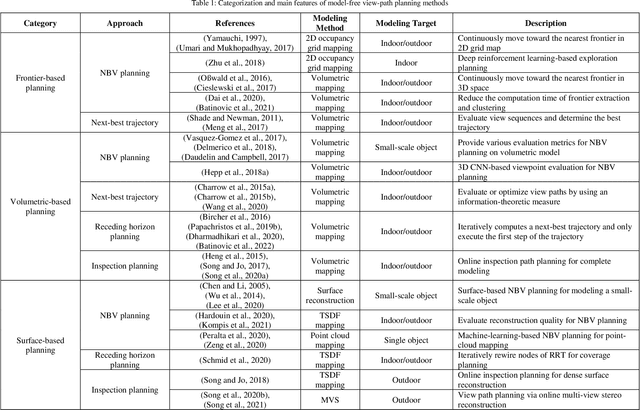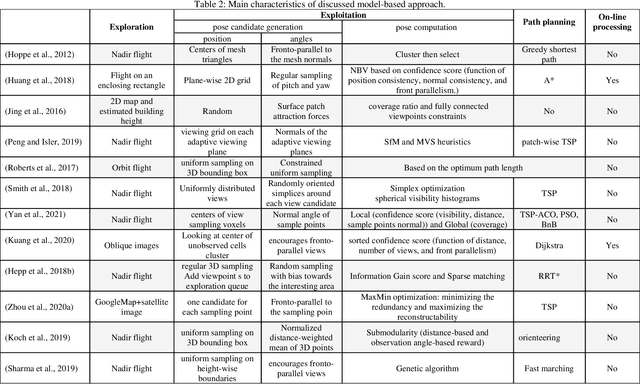Mohammad Saadatseresht
A Review on Viewpoints and Path-planning for UAV-based 3D Reconstruction
May 07, 2022



Abstract:Unmanned aerial vehicles (UAVs) are widely used platforms to carry data capturing sensors for various applications. The reason for this success can be found in many aspects: the high maneuverability of the UAVs, the capability of performing autonomous data acquisition, flying at different heights, and the possibility to reach almost any vantage point. The selection of appropriate viewpoints and planning the optimum trajectories of UAVs is an emerging topic that aims at increasing the automation, efficiency and reliability of the data capturing process to achieve a dataset with desired quality. On the other hand, 3D reconstruction using the data captured by UAVs is also attracting attention in research and industry. This review paper investigates a wide range of model-free and model-based algorithms for viewpoint and path planning for 3D reconstruction of large-scale objects. The analyzed approaches are limited to those that employ a single-UAV as a data capturing platform for outdoor 3D reconstruction purposes. In addition to discussing the evaluation strategies, this paper also highlights the innovations and limitations of the investigated approaches. It concludes with a critical analysis of the existing challenges and future research perspectives.
 Add to Chrome
Add to Chrome Add to Firefox
Add to Firefox Add to Edge
Add to Edge